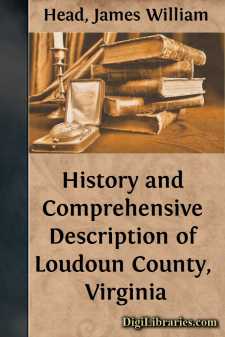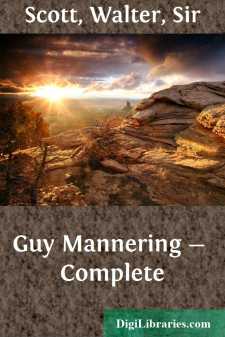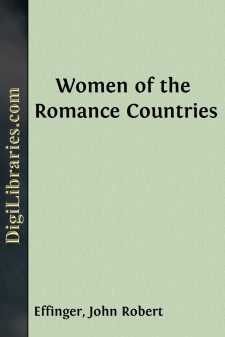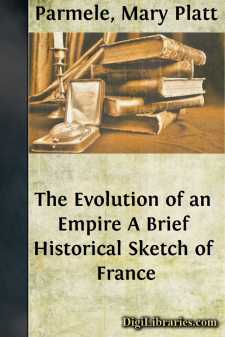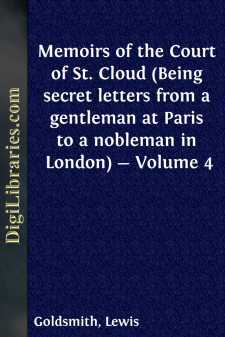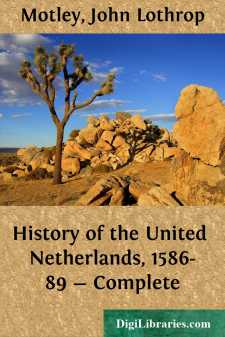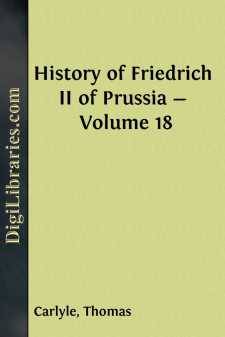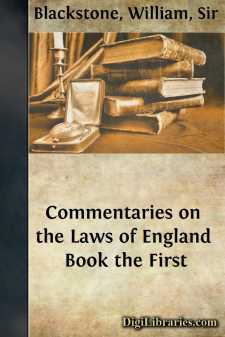History
- Africa 30
- Americas (North Central South West Indies) 50
- Ancient 68
- Asia 58
- Australia & New Zealand 8
- Canada 41
- Caribbean & West Indies 1
- Civilization 20
- Eastern Europe 12
- Europe
- Expeditions & Discoveries 60
- General 77
- Historical Geography 1
- Jewish 9
- Latin America 3
- Medieval 8
- Middle East 13
- Military 248
- Revolutionary 8
- Study & Teaching 5
- United States 353
- Western Europe 56
- World 13
Europe Books
Sort by:
by:
Leslie Stephen
CHAPTER I JAMES MILL I. EARLY LIFE Bentham's mantle fell upon James Mill. Mill expounded in the tersest form the doctrines which in Bentham's hands spread into endless ramifications and lost themselves in minute details. Mill became the leader of Bentham's bodyguard; or, rather, the mediator between the prophet in his 'hermitage' and the missionaries who were actively engaged...
more...
Introduction. know not when I first planned this work, so inextricably is the idea interwoven with a fading recollection of my earliest aims and ambitions. However, had I not been resolutely determined to conclude it at any cost—mental, physical, or pecuniary—the difficulties that I have experienced at every stage might have led to its early abandonment. The greatest difficulty lay in procuring...
more...
by:
Walter Scott
The Novel or Romance of Waverley made its way to the public slowly, of course, at first, but afterwards with such accumulating popularity as to encourage the Author to a second attempt. He looked about for a name and a subject; and the manner in which the novels were composed cannot be better illustrated than by reciting the simple narrative on which Guy Mannering was originally founded; but to which,...
more...
The Age of the Countess Matilda of Tuscany The eleventh century, which culminated in the religious fervor of the First Crusade, must not on that account be considered as an age of unexampled piety and devotion. Good men there were and true, and women of great intellectual and moral force, but it cannot be said that the time was characterized by any deep and sincere religious feeling which showed itself...
more...
CHAPTER I. One of the greatest achievements of modern research is the discovery of a key by which we may determine the kinship of nations. What we used to conjecture, we now know. An identity in the structural form of language establishes with scientific certitude that however diverse their character and civilizations, Russian, German, English, French, Spaniard, are all but branches from the same...
more...
by:
Lewis Goldsmith
PARIS, August, 1805. MY LORD:—The Italian subjects of Napoleon the First were far from displaying the same zeal and the same gratitude for his paternal care and kindness in taking upon himself the trouble of governing them, as we good Parisians have done. Notwithstanding that a brigade of our police agents and spies, drilled for years to applaud and to excite enthusiasm, proceeded as his advanced...
more...
Five great rivers hold the Netherland territory in their coils. Three are but slightly separated—the Yssel, Waal, and ancient Rhine, while the Scheldt and, Meuse are spread more widely asunder. Along each of these streams were various fortified cities, the possession of which, in those days, when modern fortification was in its infancy, implied the control of the surrounding country. The lower part...
more...
by:
Thomas Carlyle
Chapter I.—THE CAMPAIGN OPENS. Seldom was there seen such a combination against any man as this against Friedrich, after his Saxon performances in 1756. The extent of his sin, which is now ascertained to have been what we saw, was at that time considered to transcend all computation, and to mark him out for partition, for suppression and enchainment, as the general enemy of mankind. "Partition...
more...
by:
Charles Greville
PREFACE BY THE EDITOR The Author of these Journals requested me, in January 1865, a few days before his death, to take charge of them with a view to publication at some future time. He left that time to my discretion, merely remarking that Memoirs of this kind ought not, in his opinion, to be locked up until they had lost their principal interest by the death of all those who had taken any part in the...
more...
HE following sheets contain the substance of a course of lectures on the laws of England, which were read by the author in the university of Oxford. His original plan took it's rise in the year 1753: and, notwithstanding the novelty of such an attempt in this age and country, and the prejudices usually conceived against any innovations in the established mode of education, he had the satisfaction...
more...



